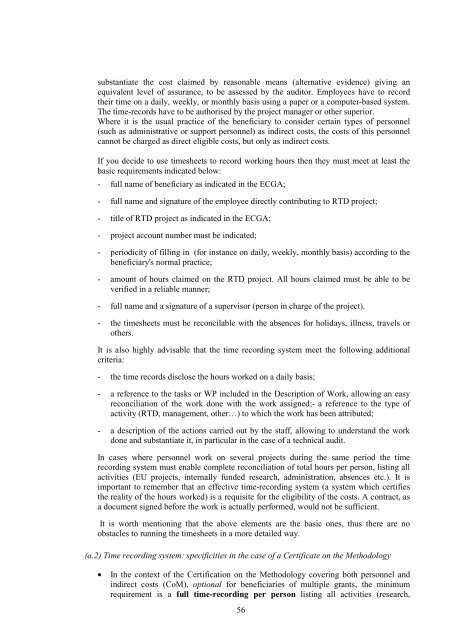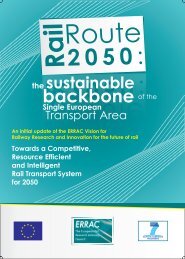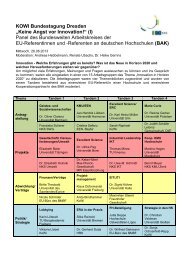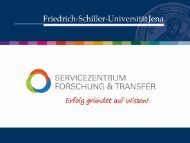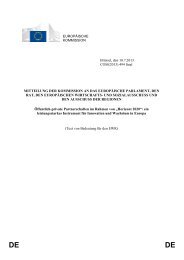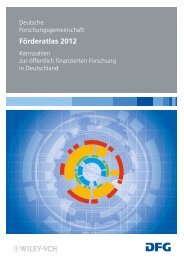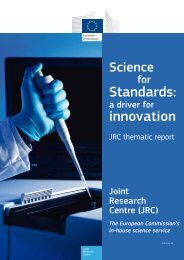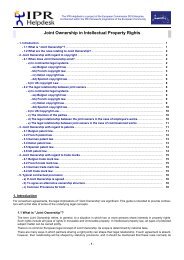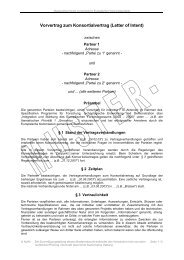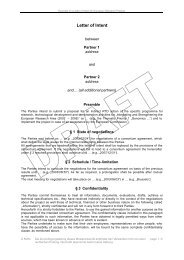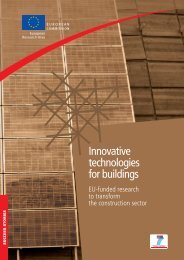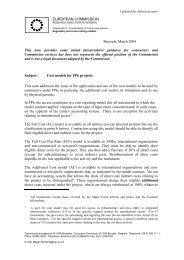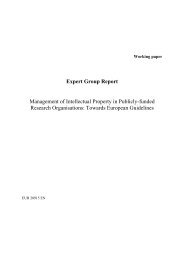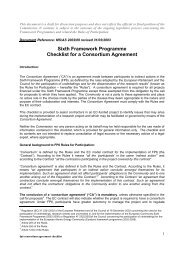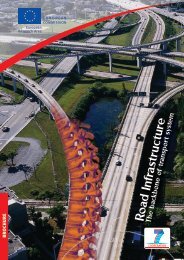Guide to Financial Issues relating to FP7 Indirect Actions - KoWi
Guide to Financial Issues relating to FP7 Indirect Actions - KoWi
Guide to Financial Issues relating to FP7 Indirect Actions - KoWi
Create successful ePaper yourself
Turn your PDF publications into a flip-book with our unique Google optimized e-Paper software.
substantiate the cost claimed by reasonable means (alternative evidence) giving an<br />
equivalent level of assurance, <strong>to</strong> be assessed by the audi<strong>to</strong>r. Employees have <strong>to</strong> record<br />
their time on a daily, weekly, or monthly basis using a paper or a computer-based system.<br />
The time-records have <strong>to</strong> be authorised by the project manager or other superior.<br />
Where it is the usual practice of the beneficiary <strong>to</strong> consider certain types of personnel<br />
(such as administrative or support personnel) as indirect costs, the costs of this personnel<br />
cannot be charged as direct eligible costs, but only as indirect costs.<br />
If you decide <strong>to</strong> use timesheets <strong>to</strong> record working hours then they must meet at least the<br />
basic requirements indicated below:<br />
- full name of beneficiary as indicated in the ECGA;<br />
- full name and signature of the employee directly contributing <strong>to</strong> RTD project;<br />
- title of RTD project as indicated in the ECGA;<br />
- project account number must be indicated;<br />
- periodicity of filling in (for instance on daily, weekly, monthly basis) according <strong>to</strong> the<br />
beneficiary's normal practice;<br />
- amount of hours claimed on the RTD project. All hours claimed must be able <strong>to</strong> be<br />
verified in a reliable manner;<br />
- full name and a signature of a supervisor (person in charge of the project).<br />
- the timesheets must be reconcilable with the absences for holidays, illness, travels or<br />
others.<br />
It is also highly advisable that the time recording system meet the following additional<br />
criteria:<br />
- the time records disclose the hours worked on a daily basis;<br />
- a reference <strong>to</strong> the tasks or WP included in the Description of Work, allowing an easy<br />
reconciliation of the work done with the work assigned;- a reference <strong>to</strong> the type of<br />
activity (RTD, management, other…) <strong>to</strong> which the work has been attributed;<br />
- a description of the actions carried out by the staff, allowing <strong>to</strong> understand the work<br />
done and substantiate it, in particular in the case of a technical audit.<br />
In cases where personnel work on several projects during the same period the time<br />
recording system must enable complete reconciliation of <strong>to</strong>tal hours per person, listing all<br />
activities (EU projects, internally funded research, administration, absences etc.). It is<br />
important <strong>to</strong> remember that an effective time-recording system (a system which certifies<br />
the reality of the hours worked) is a requisite for the eligibility of the costs. A contract, as<br />
a document signed before the work is actually performed, would not be sufficient.<br />
It is worth mentioning that the above elements are the basic ones, thus there are no<br />
obstacles <strong>to</strong> running the timesheets in a more detailed way.<br />
(a.2) Time recording system: specificities in the case of a Certificate on the Methodology<br />
• In the context of the Certification on the Methodology covering both personnel and<br />
indirect costs (CoM), optional for beneficiaries of multiple grants, the minimum<br />
requirement is a full time-recording per person listing all activities (research,<br />
56


